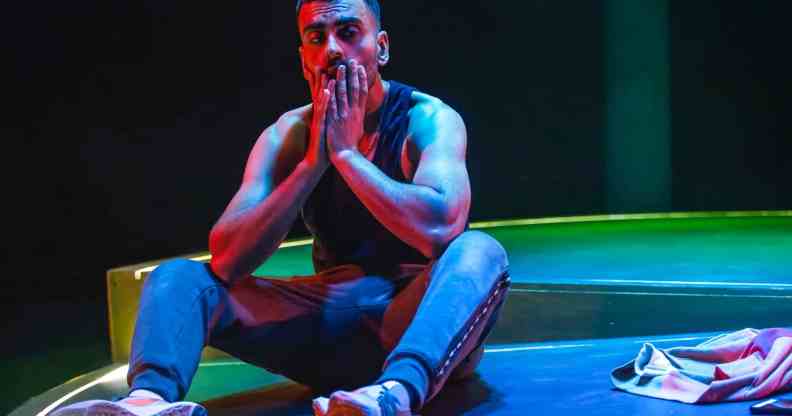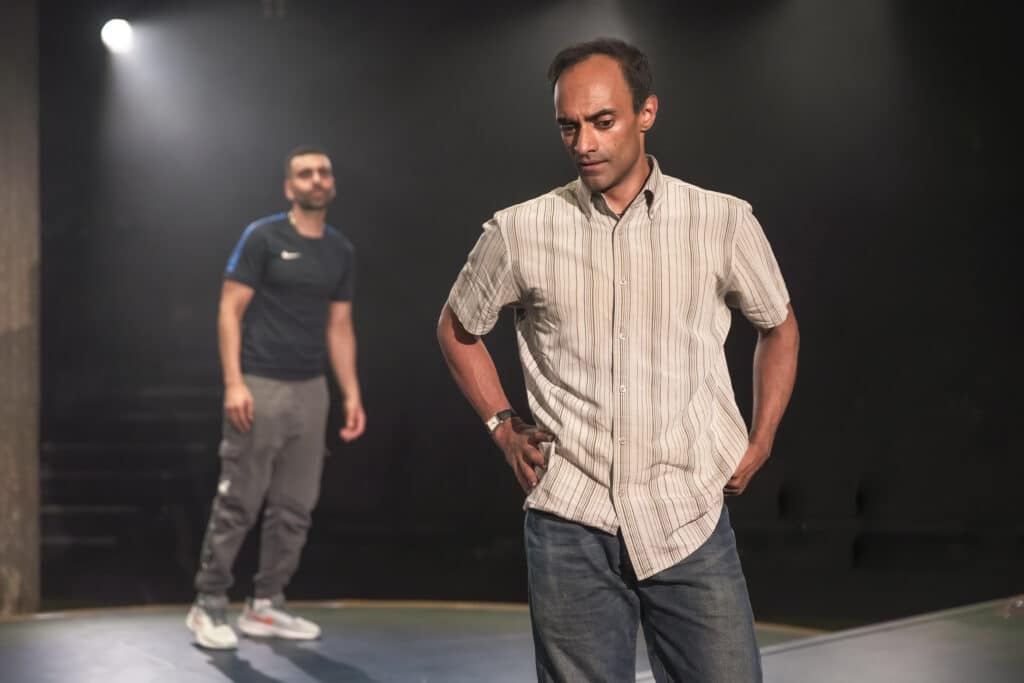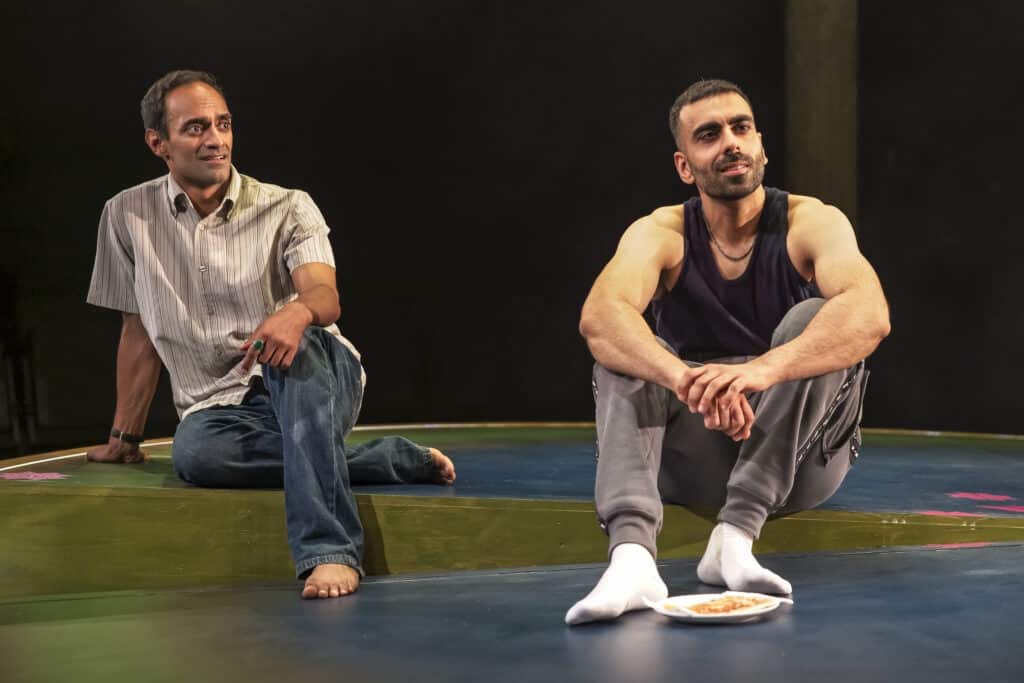How a powerful new play is calling out the UK’s horrific treatment of LGBTQ+ asylum seekers

Waleed Akhtar as Bilal in The P Word. (Craig Fuller)
The P Word is a new play written by and starring Waleed Akhtar which explores the experience of gay Pakistani men in the UK and the struggle of LGBTQ+ asylum seekers.
Split into two halves, in the first act we meet Billy (Akhtar), a gay Pakistani man who has faced discrimination from all sides and spends his days on Grindr. We also meet gay asylum seeker Zafar (Esh Alladi), who fled Pakistan when his father tried to kill him, only to be met with a hostile Home Office.
After delving into both of their stories, the second act sees the two men meet and their stories unfold as they face the future together and create an unlikely bond. It’s a moving play that illustrates the often-impossible conditions forced upon LGBTQ+ asylum seekers by the UK government, while exploring two different versions of the queer, Muslim experience.
As The P Word announced a one-week extension following huge demand and glowing reviews, Waleed Akthar tells PinkNews why theatre needs more plays like it.
PinkNews: What was the inspiration behind the piece?
Waleed Akhtar: I had never really seen a play that featured queer Muslims that didn’t centre around whiteness, for example, a brown person in a relationship with a white man, and the agenda was always about them being conflicted with their religion. I want to push that narrative forward. I really wanted to see two brown men on stage together and look at that experience instead.
I often work with the Human Rights theatre company Ice & Fire and they have been exposed to a lot of testimony from LGBT+ asylum seekers. So the idea was born from that. We are also really lucky to be working with Micro Rainbow who have been looking over the script to check that the details are correct.

(Craig Fuller)
Why is it so important that shows like The P Word are shown on stage, especially in the current political climate around refugees and asylum seekers?
The narratives around asylum seekers and immigration have been so distorted, that actually, you do need to humanise this story. We need to understand where these people are coming from, and what they’re running away from as well.
Tying it to the very real issue of the legislation that we have in this country, and how it’s getting worse day by day was really important [the play directly calls out former home secretary Priti Patel, whose Nationality and Borders Bill makes life even harder for LGBTQ+ asylum seekers).
On stage, I really believe that immediacy changes things like the conversation happening out there and then it permeates out further.
The P Word talks about the gay community in general, and how there can be problematic spaces within that as well. There’s this assumption that when you come out, you’re embraced by the community, but actually they can be quite hostile to people of colour or people who don’t fit the norm. We need to be kinder to each other.
Why call it The P Word?
Originally I wanted to call it “I don’t f**k P**is” but that didn’t happen. Then I came up with The P Word and that really fit with me because I was like ‘the people who know that reference will know it’. But ‘the P word’ can be so many other words, like ‘Pride’ and ‘pakoras’.
Are there any aspects of the script that you loved seeing come to life on stage?
I’m really enjoying playing Billy because he’s so problematic. I don’t think we get to see characters that are that problematic and nasty. There’s a little bit of joy in presenting him and the journey that he goes on as well, throughout the play.
They are lonely people who find each other and find solace in one another. I tend to write with a lot of humour and that constantly comes out in the script. And I also looked at the universality of their story as well. For me when you’re super specific, it becomes universal as well and that’s really helped audiences resonate with it.
Have you had any influences from other theatre and media?
I feel like everything I make is a product of everything that I’ve ever consumed, the good and the bad. There’s a real wave of Asian playwrights that I am taking massive inspiration from. It is a really interesting moment because I’ve never seen so much work from South Asians in mainstream theatres. They are the writers pushing narratives forward and not falling on old tropes.
I can’t praise the Bush [theatre] enough, they have been commissioning so many great new pieces of work, when it could have been so easy to fall back on their usual choices. And they really do embrace queer themes.

Esh Alladi (Zafar) and (Waleed Akhtar (Bilal) in The P Word at Bush Theatre. (Craig Fuller)
What has the reaction been like so far?
The conversations we are having after the show with people who come to watch it blow me away. It’s bringing a whole bunch of queer South Asians and people of colour to the theatre as well. It seems to have a really broad appeal.
What is next for The P Word after it finishes its run?
Some people told me to maybe try and adapt it to a film but maybe I need a little time away from the characters before I think about the future.
The P Word is on at the Bush Theatre, London, until 29 October. Tickets are available here.

